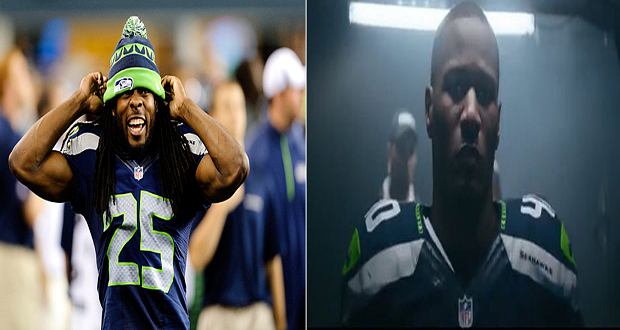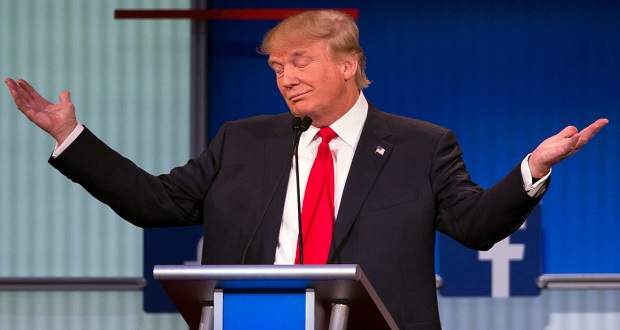
I’m no football guru or die-hard. Until recently, I really had no reason to engage in the playoffs or care about the fate of the Super Bowl. I haven’t watched a game since my home team (#RAVENSNATION) was defeated by the Bengals a few weeks ago. And although I placed second in my company’s Fantasy Football League (#GoTeamHarris), it’d be totally misleading of me to take all the credit—my boyfriend happens to be a stellar coach.
Nonetheless, recent events during the playoffs have garnered by attention; you could say they struck the “diversity and inclusion” nerve in me. These events or situations, rather, involve two players—Derrick Coleman and Richard Sherman, both of whom play for the Seattle Seahawks. Though the recent media presence of these two players have been dissimilar to say the least, I believe these men, their organization, and respective situations can be linked to progress made and work to be done in world of diversity and inclusion.
Let’s start with Derrick Coleman. Everyone has a story, and Coleman’s story is amazing to say the least. I was first introduced to him in a Duracell commercial that was shared on my Facebook feed. His narrative captivated me. Coleman shared how he overcame being bullied by children, misunderstood by coaches, and overlooked by the NFL during the draft because he was different. He shares with viewers that he did not let his disability or obstacles determine his destiny. Today, Coleman is the only deaf football player in the National Football League.
Last night in my Theories of D&I class, my professor posed the question, “Why aren’t there more Derrick Coleman’s in the NFL?” My initial reaction was that maybe there aren’t many people with disabilities who know how to play football good enough to be in the NFL. That was my bias, and a clear indication of how much more there is for me to learn and develop in this space.
One of my classmates, however, was able to answer that differently. In so many words, she went on to explain that creating an environment for success for someone like Coleman (or anyone considered ‘different’) requires things to be done differently, a shift in thinking. And as we have seen for ourselves, there are often times practices, policies, cultures that unintentionally present barriers to those kinds of changes.
Just consider the realities that come with playing someone like Derrick Coleman. It requires a certain level of accommodation to have someone like Coleman on the team. It requires the coaches and players to get out of their comfort zones and “traditional” ways of operating and doing things. It requires them to open their minds to navigate difference and understand something that they have never had to experience for themselves. And most of all, it requires a certain level of inclusion, to create a team where difference is accepted and not ostracized. For those reasons, I believe Coleman and the Seahawks deserve to be celebrated.
And then there was Richard Sherman. Also, a player for the Seahawks whom I hadn’t known anything about until he popped up on my Facebook feed, though for reasons not as favorable as Coleman. I remember wondering, “What is all the hoopla and fuss about this man and his post-game interview?” Considering some of the things he’d been called as a reaction to it– a thug, an ape, an n-word–I most definitely knew he had to have committed an act against humanity on national television. Why else would people react this way? And then there was also this sense of sympathy or concern rather, for the reporter who had interviewed him. As if there were a reason she should have been afraid. I HAD TO SEE THIS INTERVIEW!! **Searches on YouTube**
To my surprise, I saw what seemed to be a passionate, confident, young, black man who obviously just played a big role in his team winning the NFC Championship. I heard him express how GREAT he knows he is, and I could do nothing but smile. And I wasn’t alone; before I knew it one of my friends began trending #YoungBlackandGifted on my Facebook feed. Richard Sherman, while to some became a villain, for others (myself included) became a movement.
I couldn’t understand why Sherman’s response garnered such an outrage. Given the nature of the game of football itself, isn’t that level of intensity and passion expected? Especially for a championship game as critical as this one? Isn’t this what all football players are essentially working towards? Why did him being confident translate to him being a thug, or aggressive, or of any harm to the reporter who was interviewing him? In fact, the journalist in me was excited for her! What an amazing moment to be apart of!
Richard Sherman and the reactions to his behavior bring to the forefront how our unconscious biases tend to play out in our perceptions of people and situations. In subtle and even overt ways, society has taught us to fear black men. Harvard Implicit Association test studies have shown that we unconsciously associate negative or unpleasant feelings with Black—and in most cases this is unintentional.
Above everything, I believe Richard Sherman and Derrick Coleman have gotten conversations started—conversations that we in some cases tend to avoid. Race, difference, disability, privilege, power, bias are all tough talking points (for me at least). But they need to be had.
Both Coleman and Sherman, unknowingly and likely unintentionally, have substantiated why I enjoy and am so passionate about this work. So if anyone asks, or cares to know, I’ll be rooting for the Seahawks in the Super Bowl.


















